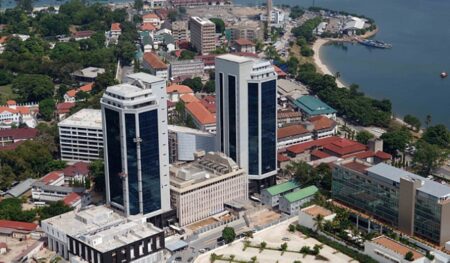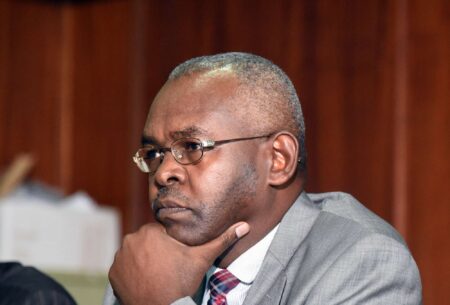Borrowers in Kenya should now expect interest rates as high as 30 per cent following the repeal of the interest rate cap law.
Parliament failed to raise the required quorum to defend the rate cap law which came into place in September 2016.
There has been a push by bankers, mainly through their lobby group-Kenya Bankers Association (KBA) to have controls on rate cap revised.
READ:Kenyan Banks begin feeling the interest rates cap effects
The law which has been in place for the last four years has controlled lending rates by commercial banks at four percentage points above the Central Bank of Kenya (CBK) Rate.
CBK has retained its benchmark lending rate at 9.0 per cent for the sixth straight time since bringing it down in July 30 2018.
This means banks could not charge loan at rates above 13 per cent, a move that was aimed at sparing borrowers higher cost of loans.
President Kenyatta who declined to approve the Finance Bill 2019 asked MPs to scrap commercial lending rate caps.
The President argued that the interest rate caps stifled borrowing by SMEs.
READ:World Bank, IMF biggest winners in Kenya’s interest rates cap repeal
It required at least 233 MPs to vote to defeat the reservations, but only 161 members were present during the motion.
On November 7, the President signed the Finance Bill 2019, repealing Section 33b of the Banking Act that specifically provided for the capping of interest rates.
“The repeal of section 33b of the Banking Act is expected to enhance access to credit by the private sector especially the Micro, Small and Medium Enterprises (MSME’s) as well as cut out exploitative shylocks and other unregulated lenders,” the Presidential Strategic Communication Unit (PSCU) said in a statement.
READ ALSO:Why high risk borrowers , SMEs in Kenya could get easy loans
Other aspects of the new law include the exemption of the National Housing Development Fund from income tax, as part of government efforts to support the affordable housing pillar of the Big 4 Agenda.
The latest developments now mean lenders will be at liberty to charge the rates they want. Prior to introduction of the rates cap, the average bank lending rate was 18 per cent, with some charging as high as 35 per cent.
KBA chairman Joshua Oigara has however said lending rates will increase by about three per cent from the current average, meaning it is likely to average 16 per cent.
“The rates are likely to increase by two to three per cent,” he said in Nairobi.
Banks have started introducing new interest rates on loans. Among them is Sidian Bank which has announced interest rates of 16 per cent for corporate and 19 per cent for consumers,micro loans(unsecured loans), credit cards and mobile loans.
“Following the signing of the Finance Bill into law by the President, which among other provisions repeals section 33b of the Banking Act, the bank has reviewed interest rates for various products based on the associated credit risks,” CEO Chege Thumbi said in an internal memo.
KCB Group has since welcomed the decision to lift the cap on interest rates.
Kenya Bankers Association chairman Oigara, who is also the KCB Group Chief Executive Officer, has however said customers should not expect a sudden increase in the interest rates.
“The regime of the 20 per cent interest rate is long gone. The macroeconomic and business environment where we are today does not at all support an environment of high rates,” he said.
Mr Oigara said allowing banks to price the risk of borrowers is important and the banking industry has over the last two years learnt a number of lessons in that regard.
“As an industry, we are in a new equilibrium. Banks have reached a new business model. We lend to current customers at 13 per cent because we have accepted their risk profile as an industry. That will not change the next day. So the fear that there will be a massive repricing the next day is not true,”Oigara affirmed.
The net effect of the capping has been a credit squeeze and a slowdown in lending especially towards Small and Medium Enterprises, whose risk profile is perceived to be higher than that of bigger and more established businesses.
“Banks are ready to lend. So we are going to see more people including SMEs start accessing credit in the industry. Customers with high-risk profiles we may see a two to three per cent increase. We are not going to see a massive change,” he noted.
The repeal of the cap has widely been debated by analysts, consumer groups, politicians and even in the media; creating fears that banks will reprice loans upwards.
READ ALSO:Tough times push Kenyan banks into acquisitions
On Friday, Co-operative Bank of Kenya said it will retain existing interest rates for “all outstanding loans based on existing meonet market conditions.”
“We note that the move by the government will help to avail necessary credit for the growth of the economy and particularly the micro and small medium enterprises segments that are critical for the growth of our economy,” Group managing director and CEO Gideon Muriuki said in a notice to customers.
Lending to MSMEs
President Kenyatta last week launched a new credit facility for Micro, Small and Medium (MSME’s) enterprises dubbed Stawi.
Stawi is a mobile loan product that will allow MSME’s to access unsecured credit of between Sh30,000 ($292.83) and Sh 250,000($2440.27 ) at an interest rate of 9 per cent per annum.
The Central Bank of Kenya has partnered with NCBA Bank, Cooperative Bank, Diamond Trust Bank and KCB to offer the scheme which is aimed at improving access to credit for MSMEs
“Stawi will offer a longer repayment period to small business borrowers, thus making it easier for them to better manage their cash flows; and, therefore, grow their businesses to the next level,” President Kenyatta said, noting that MSME’s account for over 80 per cent of all businesses in the country.
The Central Bank of Kenya notes that MSMEs contribute about 28.4 per cent of the Gross Domestic Product.
The approximately 7 million MSMEs are concentrated in the manufacturing, wholesale and retail trade, and transport and storage sectors.
“The resilience of MSMEs has indeed been a key strength of Kenya’s economic growth in recent years,” CBK Governor Patrick Njoroge said.
He said feedback from MSMEs will also be essential for banks to calibrate their products.











